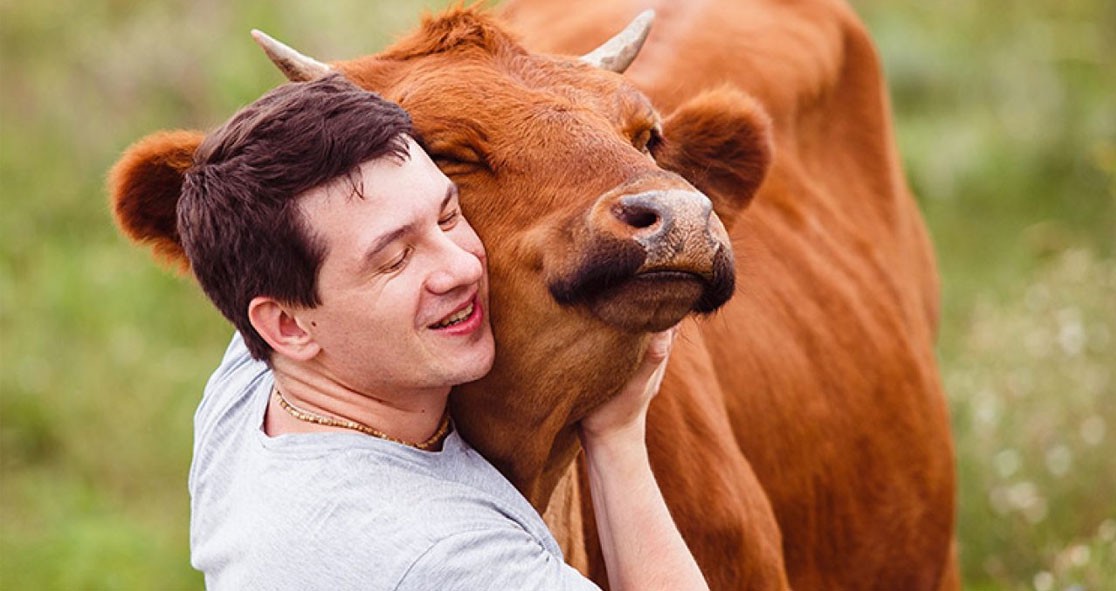We have a lot of wellness trends around that are diagnosed to ease and soothe our mind, body, and soul. Recently, a self-care practice, which hails from the Netherlands, has been found to be a promising approach.
Also called “koeknuffelen” in Dutch, cow hugging is a self-care practice that is known to promote healing through a good human-to-animal touch.
Typically, this practice includes taking cows on a farm tour and then resting against them for a couple of hours.
The cow’s body temperature is warm and heartbeats are slow, and hugging them can be an incredibly soothing experience, according to the BBC.
The practice also includes giving the animal a backrub, getting licked by them, or reclining against them, which all are a part of the therapeutic encounter.
In the Netherlands, embracing cows has now become popular. The practice has been growing globally because it carries immense mental health benefits.
Cow hugging has been believed to reduce stress and promote positivity by boosting a hormone called oxytocin, which is released during a social bonding.
The calming effects from an emotional bonding with the animals are enhanced when you cuddle larger mammals.
This self-care practice emerged in rural Dutch provinces about a decade ago. It is now part of a wider movement to bring people closer to nature and country life.
This wellness trend has become so popular that farms in Rotterdam, Switzerland, and even the United States have been offering cow-hugging session – thanks to its stress-busting effects.
Besides, the cuddling experience could be pleasurable for the cattle.
A 2007 study, published in the journal Applied Animal Behaviour Science, has found that cows show signs of deep relaxation, and stretching out when massaged in particular areas, especially the neck and the upper back.
However, experts say the benefits are more common in humans than cows.
“Although there may be some reported benefits for the cow, the main beneficiary seems to be the person doing the hugging,” Philip Wilson, External Affairs Advisor at World Animal Protection, told Insider.
“As an animal welfare organization, we are concerned that people learn and understand the intrinsic nature of animals as living, sentient beings, capable of feeling pain and suffering, as well as a range of positive emotions,” he added.
“We are also concerned about any unnecessary stress caused in terms of unwanted contact with people, risks to the animal and person, transportation and housing conditions,” Wilson added. “In terms of therapeutic benefits, we would question whether using companion animals such as dogs and cats would be just as effective and would pose less risk to all parties.”




















